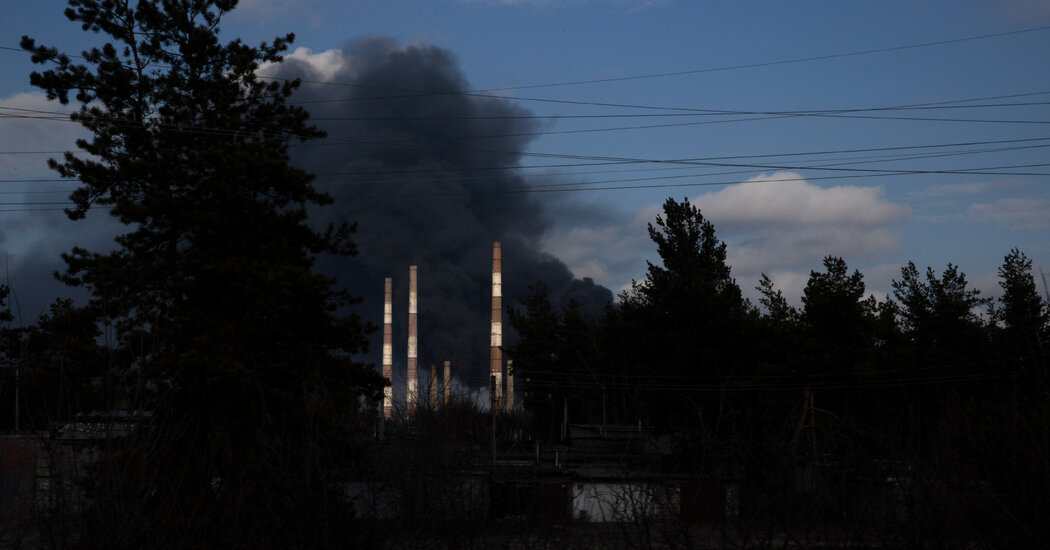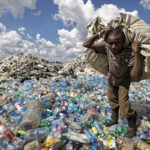
The punishing sanctions that the United States and European Union have so far announced against Russia for its invasion of Ukraine include shutting the government and banks out of global financial markets, restricting technology exports and freezing assets of influential Russians. Noticeably missing from that list is the one reprisal that would cause Russia the most pain: choking off the export of Russian fuel.
The omission is not surprising. In recent years, the European Union has received nearly 40 percent of its gas and more than a quarter of its oil from Russia. That energy heats Europe’s homes, powers its factories and fuels its vehicles, while pumping enormous sums of money into the Russian economy.
Losing out on those revenues would be hard for Russia, which relies heavily on energy exports to finance its government operations and support its economy. Oil and gas exports provide more than a third of the national budget. But a cutoff would hurt Europe as well.
“You want the sanctions to hurt the perpetrator more than the victim,” said David L. Goldwyn, who served as a State Department special envoy on energy in the Obama administration.
The situation would surprise some of last century’s cold warriors. Throughout most of the post-World War II era of superpower confrontation, many analysts believed that the more economically intertwined the Soviet Union and the West became, the less likely it was that conflicts would arise. Trade and economic self-interest would ultimately make allies out of everybody, the argument went.
Now, the European Union is Russia’s largest trading partner, accounting for 37 percent of its global trade in 2020. About 70 percent of Russian gas exports and half of its oil exports go to Europe.
The flip side of mutual interest is mutual pain.
European leaders are caught between wanting to punish Russia for its aggression and to protect their own economies.
So far, Germany’s decision on Tuesday to halt Nord Stream 2 — the completed gas pipeline that directly links Russia and northeastern Germany — is among the most consequential that Europe has taken, said Mathieu Savary, chief European investment strategist at BCA Research.
As for the gas that is already flowing to Europe, Western leaders are reluctant to reduce it further given that during the last three months of 2021, Russia shrank its pipeline exports by close to 25 percent compared with a year earlier, according to the International Energy Agency. Europe’s reserves stand at just 30 percent, and Europeans are already paying exorbitant prices for energy.
The conflict is occurring when supplies of both oil and natural gas have been tight for months, driving up prices.
“There are serious concerns” that Moscow will tighten exports further and send prices higher, said Helima Croft, head of commodities at RBC Capital Markets, an investment bank.
Germany, Russia’s largest trading partner in Europe, gets 55 percent of its supply from Russia. Italy, the second-biggest trading partner, gets 41 percent. At a forum in Milan last week, the Russian ambassador Sergey Razov said President Vladimir V. Putin had told the Italian prime minister, Mario Draghi, that “if Italy needs more gas we are ready to supply it.”
Mr. Putin also made a point of saying that roughly 500 Italian businesses have operations in Russia and that bilateral investments are worth $8 billion.
Austria, Turkey and France are large consumers of Russian natural gas. In central and Eastern Europe, Hungary, Poland, the Czech Republic and Slovakia are the biggest customers, the Russian energy giant Gazprom said.
On Thursday, the International Energy Agency, which would probably coordinate any response to a global energy disruption, said the supplies of oil “most immediately at risk” were 250,000 barrels a day from Russia that move through Ukraine to Hungary, Slovakia and the Czech Republic. That amount is relatively small in a global market that consumes 100 million barrels a day, but its loss could create severe shortages in those countries.
The West is not without tools. Mr. Goldwyn, the former State Department envoy, said Russia’s energy sales would still likely be hurt by sanctions on Russian financial institutions and other measures, even if oil and gas exports were not directly targeted.
Russia’s Attack on Ukraine and the Global Economy
A rising concern. Russia’s attack on Ukraine could cause dizzying spikes in prices for energy and food and could spook investors. The economic damage from supply disruptions and economic sanctions would be severe in some countries and industries and unnoticed in others.
The money that Russia makes from energy exports could also be reduced if shippers, wary of the growing complexity of transporting Russian crude and supplies, raise what they charge Moscow, Mr. Goldwyn said.
He added it was possible that the White House would ban imports of Russian crude to the United States. Such a move, experts said, would force American refiners to rely on other suppliers and Moscow to find other buyers for around 700,000 barrels a day. China would most likely be one, after the two countries pledged to “strongly support each other.”
Eurasia Group, a political risk consultancy, pointed out in a note on Thursday that while the United States and Europe would try to avoid directly targeting Russian fuel exports, “the blizzard of new restrictions will force many traders to be exceedingly cautious in handling Russian barrels.”
Sanctions might also aim at blighting Russia’s future prospects. “If the U.S. targets energy, I expect it would be through technology controls that target future Russian liquefied natural gas and hydrogen,” said Scott Modell, managing director of Rapidan Energy Group, a consulting firm based in Washington.
If Russia cuts back on gas exports, Europe will try to make up the difference from already strained supplies kept in storage, and by scouring the world for more liquefied natural gas. Flows of L.N.G. from elsewhere, mostly the United States, have exceeded Russian gas volumes to Europe in recent weeks. Such measures would probably help Western European countries like Germany and Italy more than those in southern and Eastern Europe with fewer alternatives to Russian gas.
Even without a clear cutoff of fuel by Moscow or a disruption by war, there is a substantial risk that extraordinarily high gas and electricity prices will continue, squeezing hard-pressed consumers and, possibly, pushing more businesses to scale back their operations. In recent months, some energy-intensive businesses, including fertilizer makers, have announced closures because of high gas costs.




